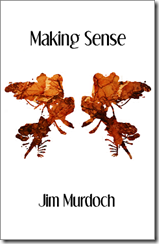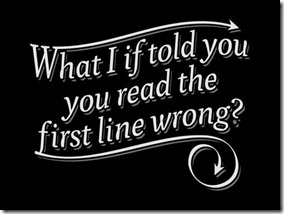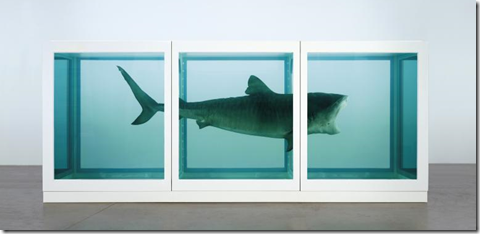Writing is rewriting. A writer must learn to deepen characters, trim writing, intensify scenes. To fall in love with the first draft to the point where one cannot change it is to greatly enhance the prospects of never publishing. – Richard North Patterson
I’ve nothing against editors. Let’s get that out of the road right away. But there’s editing and there’s editing. How many editors get name checked on the cover of a novel? Maybe in the acknowledgements buried in a list of names that doesn’t usually make it clear who’s done what. It’s the same with films. I can name the directors of a dozen great films but I’d be struggling to think of the scriptwriters’ names for any of them and if things go belly-up it’s usually the director who gets the blame. It should be the same with a book: the person whose name is in the biggest print should stand up and be counted. I wrote a book called Living with the Truth. My name is on the cover. The half-a-dozen typos that slipped through in the first printing are my fault and no one else’s.
And, before you ask, that book was professionally edited when I first sent it out looking for a publisher and, more recently, copy edited and proofread by someone apart from me; in fact three other people examined the proofs and found things to fix—clearly not all that was needed, but then it wasn’t their book, it was mine. The buck stops here. I won’t make that mistake again—in fact, my goal is to have my editors hand the work back with a “Hey, I couldn’t find anything to change—great job!”
Let me tell you what I hate. I hate artists who have assistants. I love watching documentaries about art but I hate it when you see inside an artist’s studio—Jeff Koons and Damien Hirst jump to mind but this is nothing new—and there’s a team of other artists working for them, literally painting their paintings and I’m not saying they don’t get paid for their work but whose signature goes on the work of art? Who gets the big bucks? Whose name goes down in art history? Okay, fair’s fair, I’m not saying that Hirst didn’t need a bit of help getting his shark cut in half and into its tanks but one does have to wonder how much work Hirst actually did. His was the idea and a great idea it was, too, but did he even make the tanks or were they just ordered and built to his specifications? He didn’t make the shark. He probably never even helped to cut the thing in half. He should be called a designer, at least in this instance. His design was great and it works as art, yes, but is he the artist?
But back to the topic in hand. There are good reasons why an author shouldn’t self-edit. Top of the list is that you’re too close to the work and I would agree. Which is why you should leave a long time between writing and editing. And by ‘long time’ I don’t mean a couple of weeks. I mean a long time. Of course it all depends what you mean by editing. Does rewriting count as editing?
Editing is polishing. By the time most of the things we get to polish appear on the scene all we need to do is give them a skoosh of Mr Sheen and a wipe down with a cloth, but there are levels of ‘polishing’:
When an unpolished surface is magnified thousands of times, it usually looks like mountains and valleys. By repeated abrasion, those "mountains" are worn down until they are flat or just small "hills." The process of polishing with abrasives starts with coarse ones and graduates to fine ones. – Wikipedia
Ever wondered what happened to Sisyphus?
It’s simple physics really. Over time the boulder was worn down by the constant rolling and even the hill stopped being quite so steep. After a while, albeit a very long while, he could carry what was little more than a rock in his hand without breaking a sweat. – Exit Interview
The four main types of editing are developmental editing, line editing, copy editing, and proofreading. So what the heck is the difference? And who’s responsible?
At the developmental stage you’re getting in there with a chisel and a hammer. This where you’re looking for the big stuff like plot holes and bloopers and this is where alpha and beta readers come in because at this stage you’re probably in one of two states: you think this is the best thing you’ve ever written or the last thing you’ll ever write. When my wife, who gets to read everything I’ve written before anyone else, read Exit Interview she mentioned that the protagonist knew a lot about the Bible and yet came from a family who had no interest in religion. She thought that might need some explanation and she’s probably right. Easily fixed. Doesn’t change the story. But is that editing? Or is it simply her offering her opinion? A book is a collaborative enterprise. It needs a reader to make it work and, just as with a tool, not all readers know what to do with a book when they get their hands on it. Maybe the next dozen readers won’t think twice about that, Maybe she’ll be the only person ever to think that needs clarifying—she’s my alpha reader, not my co-author—but I’ll keep what she said in mind.
Line editing focuses on the sentence or paragraph level, rather than the broad story-scope of your novel. I do more of this than anything else, what Philip Roth referred to, so beautifully, as “turning around sentences”:
I turn sentences around. That's my life. I write a sentence and then I turn it around. Then I look at it and I turn it around again. Then I have lunch. Then I come back in and write another sentence. . . . Then I read the two sentences over and turn them both around. Then I lie down on my sofa and think. Then I get up and throw them out and start from the beginning. And if I knock off from this routine for as long as a day, I'm frantic with boredom and a sense of waste. . . . And I ask myself, Why is there no way but this for me to fill my hours? – Philip Roth, The Ghost Writer
I spend more time doing this that I do writing the story. I do it whilst writing the story. I’ll have barely written a sentence then I’m in there turning it around. I love this bit. Thinking up stuff to write about and then writing about it is the hard stuff but playing with words on a page is something I could do all day long! What could be more fun than that? So before my wife gets her hands on my book at the developmental stage it’s already been line edited and partly copy edited. These stages aren’t necessarily chronological.
Copy editing is about grammar, punctuation, and proper word usage. This bit I don’t like so much. This is where you need to do global searches of your text looking for the word ‘that’ or extra spaces. This is where you look at every comma and question every adverb. This is grunt work but it’s still writing. This is what artists like Koons and Hirst delegate to others. I think they’re wrong. It doesn’t matter that they could’ve done this stuff; they should’ve done it and then signed their work with pride knowing it was all their own work.
Proofreading is the final step in the editing process and results in the final don’t-touch-it-again draft. This is where you are supposed to catch spelling mistakes, typos, missing words, isolated punctuation errors and the like. This is the hardest part because by this time you’ve read the text so many times that you’re no longer reading it, you’re remembering it. Also, the brain has this knack of being able to ‘fix’ typos while you read. Try reading this:
I cnduo't bvleiee taht I culod aulaclty uesdtannrd waht I was rdnaieg. Unisg the icndeblire pweor of the hmuan mnid, aocdcrnig to rseecrah at Cmabrigde Uinervtisy, it dseno't mttaer in waht oderr the lterets in a wrod are, the olny irpoamtnt tihng is taht the frsit and lsat ltteer be in the rhgit pclae. The rset can be a taotl mses and you can sitll raed it whoutit a pboerlm. Tihs is bucseae the huamn mnid deos not raed ervey ltteer by istlef, but the wrod as a wlohe. Aaznmig, huh? Yaeh and I awlyas tghhuot slelinpg was ipmorantt! See if yuor fdreins can raed tihs too.
This is the easy one with just the inner letters mixed. Click here for the next two levels. I was amazed how much of the first one I could read.
Spelling is irrelevant to comprehension. I reread Making Sense twenty times from cover to cover and on the last read I still found a typo. Can you believe that? No one’s informed me of any mistakes in the final copy but I wouldn’t break down and sob if there was one or two because proofreading is very hard. It’s hard, too, if you’ve never read the book before because you get caught up in the story and forget why you’re there.
The Israeli novelist Aharon Appelfeld is a man after my own heart:
[H]e deplores the way contemporary authors 'cover us with words'. He hides each finished manuscript in a drawer for two or three years, before returning to prune it further. The results are tightly packed sentences like this: 'In the ghetto, children and madmen were friends', sentences loaded with magical, terrible potential.
[…]
'I don't write easily,' he explains. 'Writing is always taking out a piece of yourself; it's a mixture of pain and pleasure.'– Hephzibah Anderson, ‘One man's road to freedom’, The Observer, 21 August 2005 (bold mine)
 Can you imagine finishing your book and then sticking it in a drawer for two or three years before even looking at it again? Nowadays, especially since the advent of the ebook, books are … let’s just go with ‘finished’ … and uploaded within days and so it’s no wonder that many look down on them. And I’m not saying that these books weren’t edited and often by a third party and for cash but I still think that’s too quick. I was telling a friend about Exit Interview and he was asking me when he might see it in print. I told him probably about 2019, maybe 2020, if my book releases go according to schedule. I intend to start editing The More Things Change in about six months—when I’ve finished the main marketing on Making Sense—a book I ‘finished’ in March 2003. I can’t imagine spending less than six months on it. At least it’s not in nineteen different voices; editing those short stories was hard.
Can you imagine finishing your book and then sticking it in a drawer for two or three years before even looking at it again? Nowadays, especially since the advent of the ebook, books are … let’s just go with ‘finished’ … and uploaded within days and so it’s no wonder that many look down on them. And I’m not saying that these books weren’t edited and often by a third party and for cash but I still think that’s too quick. I was telling a friend about Exit Interview and he was asking me when he might see it in print. I told him probably about 2019, maybe 2020, if my book releases go according to schedule. I intend to start editing The More Things Change in about six months—when I’ve finished the main marketing on Making Sense—a book I ‘finished’ in March 2003. I can’t imagine spending less than six months on it. At least it’s not in nineteen different voices; editing those short stories was hard.
My wife has a phrase she’s very fond of—“Close enough for government work”—although she used it long before she ever worked for the government. I get the phrase and understand it—I also worked for the government for many years—but it’s not a phrase I identify with because I wasn’t that government worker; I held myself to a higher standard. I’ve never been one for getting away with things. I’ve never cheated in an exam. I’ve never seen the point. Stuff like that invariably comes back to bite you on the bum.
When I sat down to look at my short stories, the ones collected in Making Sense, it had been about thirteen years—yes, years—since they were first written and I’d barely glanced at them in the intervening period. Some had been published but I hadn’t tried especially hard to get them into print. That’s a long time. It was like coming to these stories afresh and I was disappointed to see how much work they needed to bring them up to spec. The basic stories were fine—I never changed a thing there—but they were sloppily-written. So I started editing. I began with the first sentence in the first story which I read, thought about and fixed. Then I moved onto the second and so on until I got to the end and then I started again. Not every sentence needed fixing this time but an awful lot did and so I fixed them a bit more and then I started again. Then I sent the manuscript to my beta reader who made a few comments which interested me—he noted how interconnected the stories were (even more so than I’d realised)—and so I started refining them, grafting in a bit here and there to underline their interconnectedness. Then back to line editing. Six months later, having now been though the book eighteen times, I passed it onto my wife (who is an editor) to copy edit. What was left for her to fix? A few commas, a couple of typos and spelling mistakes, nothing much and that, to my mind, is how it should be. But even then I still went through the book another two times proofreading it myself before I passed it back to her to ready the PDF for the printer.
So, I don’t write alone but … I don’t know—what percentage shall we put on it? … maybe 95% of the work was done by me and no one else. My name on the cover. My responsibility.
I like to edit my sentences as I write them. I rearrange a sentence many times before moving on to the next one. For me, that editing process feels like a form of play, like a puzzle that needs solving, and it's one of the most satisfying parts of writing. – Karen Thompson Walker
I edit as I write—I agree completely with Karen Thompson Walker here. Some writers don’t. They breenge through to the end and then go back and fix the mess which is fine if that’s the way you prefer to work; there is no right way to write a novel. I can’t do that. I’ve barely written a sentence and I’m already fiddling with it. I reread constantly, often from the start of the book to where I’ve left off. I also, on occasion, read the prose aloud and nothing reveals badly-written prose quicker than reading it aloud. I don’t need to physically read the words out loud as much as I used to because I ‘hear’ them in my head but it’s still not bad practice, especially if, like me, you have a tendency to write longish sentences.
Editing is writing. I’m a writer ergo I must be an editor. I’m a better writer than an editor but then I’m a better editor than I am a marketer and that’s also a part of most writers’ job descriptions these days. Let me leave you with a final thought from Michael Morpurgo:
With all editing, no matter how sensitive –and I've been very lucky here—I react sulkily at first, but then I settle down and get on with it, and a year later I have my book in my hand.
‘Sulkily’, eh? Who says all adverbs should be cut? Some damn editor I suppose.


